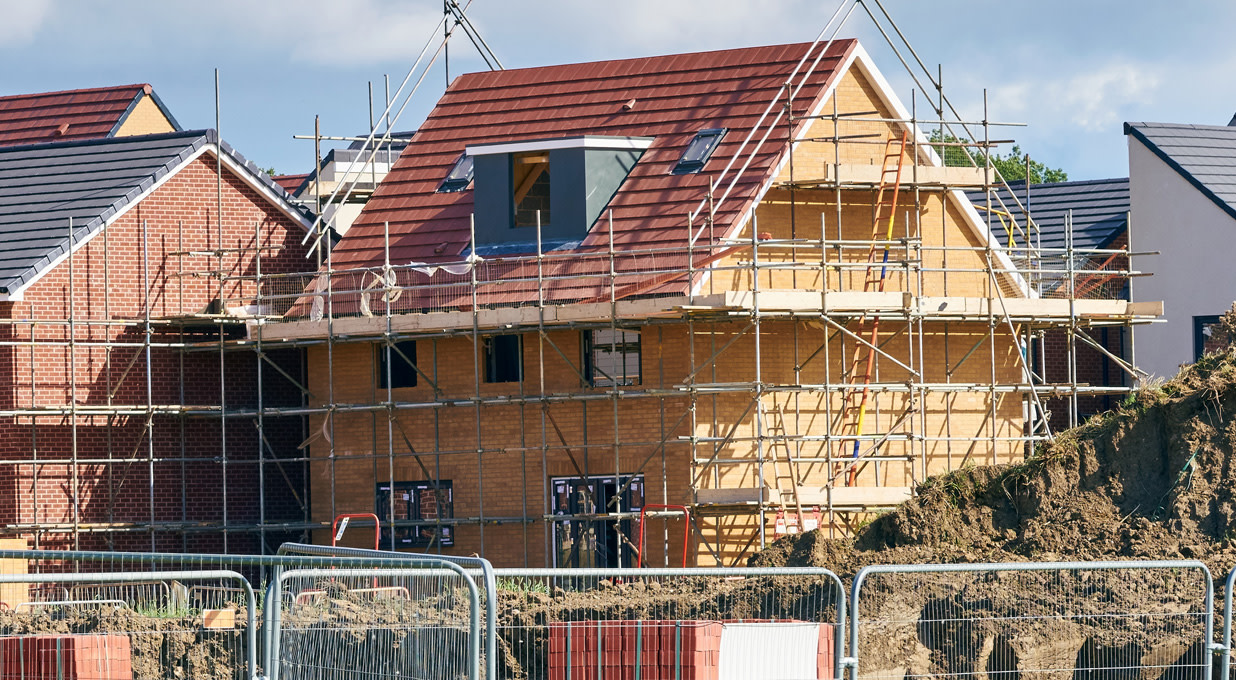Barratt’s full-year average weekly net private reservation rates rose 5.5% to 0.58, helped by easing mortgage rates.
14,004 new homes were completed last year, which was towards the top end of group guidance but marks a nearly 19% decline from the prior year. Average selling prices slipped lower from around £320,000 to £307,000.
The order book fell from £2.2bn to £1.9bn as of 30 June 2024. Net cash fell from £1.1bn to £0.9bn despite a reduction in land spending.
The proposed combination with fellow housebuilder Redrow for more than £2.5bn is still subject to regulatory approval.
Full-year underlying pre-tax profits are expected to be “slightly ahead” of the group’s previous expectations, with markets expecting this figure to land around £360mn. In the new financial year, Barratt expects to complete between 13,000-13,500 new homes.
The shares fell 2.5% following the announcement.
Our view
Barratt's full-year trading update gave with one hand and took away with the other.
On the positive side, underlying pre-tax profits look set to exceed the group’s prior expectations. Reservation rates and buyer sentiment appear to be improving too, but further easing of mortgage rates will be needed if activity is to pick up significantly.
With a new government in power, there has been a fresh dose of hope that the issues tying housebuilders’ hands can be unwound. Reform of the current planning rules is key to an uplift in activity, and Barratt appears optimistic that it’s on the way.
This optimism comes with warnings. Fewer homes being sold and at reduced prices have meant less cash coming in the door. Elevated levels of incentives, used to boost sales, have also weighed on margins, which are expected to roughly halve year-on-year.
The outlook for the new financial year was disappointing too, with even fewer homes set to be built. While a slowed market could have been predicted, the acquisition of Redrow came as a shock. The deal values Redrow at more than £2.5 billion, a 27% premium that will effectively be paid by Barratt. The Redrow brand focuses on larger, higher-quality homes for more affluent buyers, which Barratt currently serves through their David Wilson Homes brand.
The combined group expects annual cost savings of around £90mn, with synergies across office space, staff and geographies. But while the deal is an immediate bump for Redrow shareholders, benefits will take a couple of years to come through for the new group.
If build cost inflation in the new year is broadly flat as guidance suggests, and cost synergies come as expected, there could be some small relief to margins. But as with any merger, there will be challenges.
On the balance sheet side, structuring the deal as a share offer means that Barratt still has a sizable net cash position of £0.9bn. That gives flexibility to cope with a challenging market.
Ultimately, housebuilders are cyclical beasts. Their fortunes tend to expand and contract in line with the economy. With tough borrowing conditions and economic uncertainty, people are simply less likely to wander into a show home and even less inclined to sign on the dotted line than they were a year or two ago.
We see merit in the Redrow deal, the combined entity will have a war chest at its disposal and a strong landbank to unleash when the market recovers. Of course, there's no guarantee the deal goes ahead - it still requires regulatory approval. In the meantime, Barratt's valuation remains depressed, a reflection of the tricky market conditions.
Environmental, social and governance (ESG) risk
Most housebuilders are relatively low risk in terms of ESG, particularly for those in Europe. However, there are some environmental risks to consider, from direct emissions to the impact of their buildings on the local ecology. The quality and safety of their buildings is also a key risk.
According to Sustainalytics, Barratt Development’s management of ESG risk is strong. Commitments are in place to deliver net zero houses by 2030 through a combination of energy-efficient equipment, the use of renewables and the establishment of alternative heating technologies. While Barratt reports that all its revenues come from sustainable products, the total portion of recycled materials used in its operations is undisclosed.
Barratt Developments key facts
All ratios are sourced from Refinitiv, based on previous day’s closing values. Please remember yields are variable and not a reliable indicator of future income. Keep in mind key figures shouldn’t be looked at on their own – it’s important to understand the big picture.
This article is not advice or a recommendation to buy, sell or hold any investment.No view is given on the present or future value or price of any investment, and investors should form their own view on any proposed investment.This article has not been prepared in accordance with legal requirements designed to promote the independence of investment research and is considered a marketing communication.Non - independent research is not subject to FCA rules prohibiting dealing ahead of research, however HL has put controls in place(including dealing restrictions, physical and information barriers) to manage potential conflicts of interest presented by such dealing.Please see our full non - independent research disclosure for more information.


